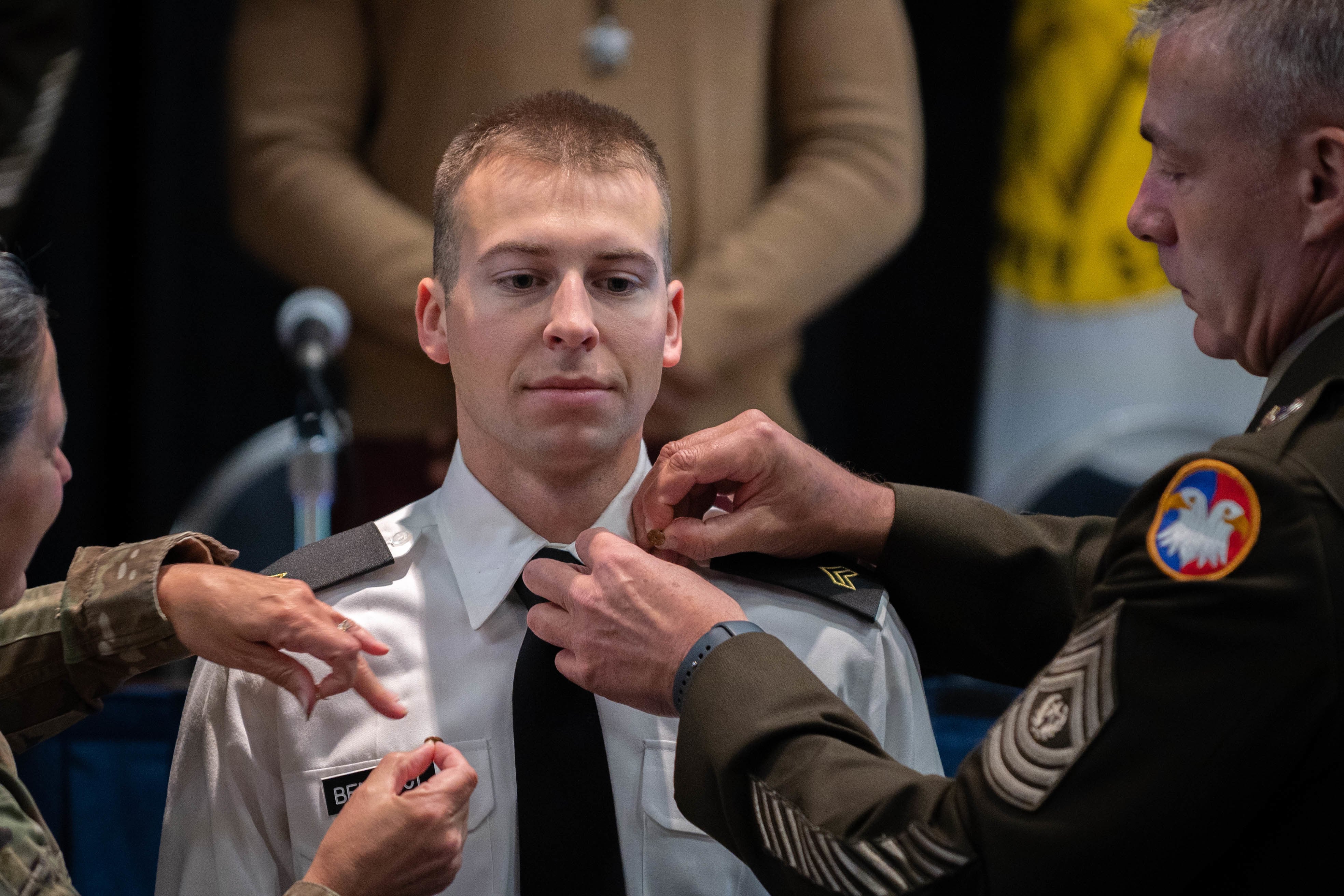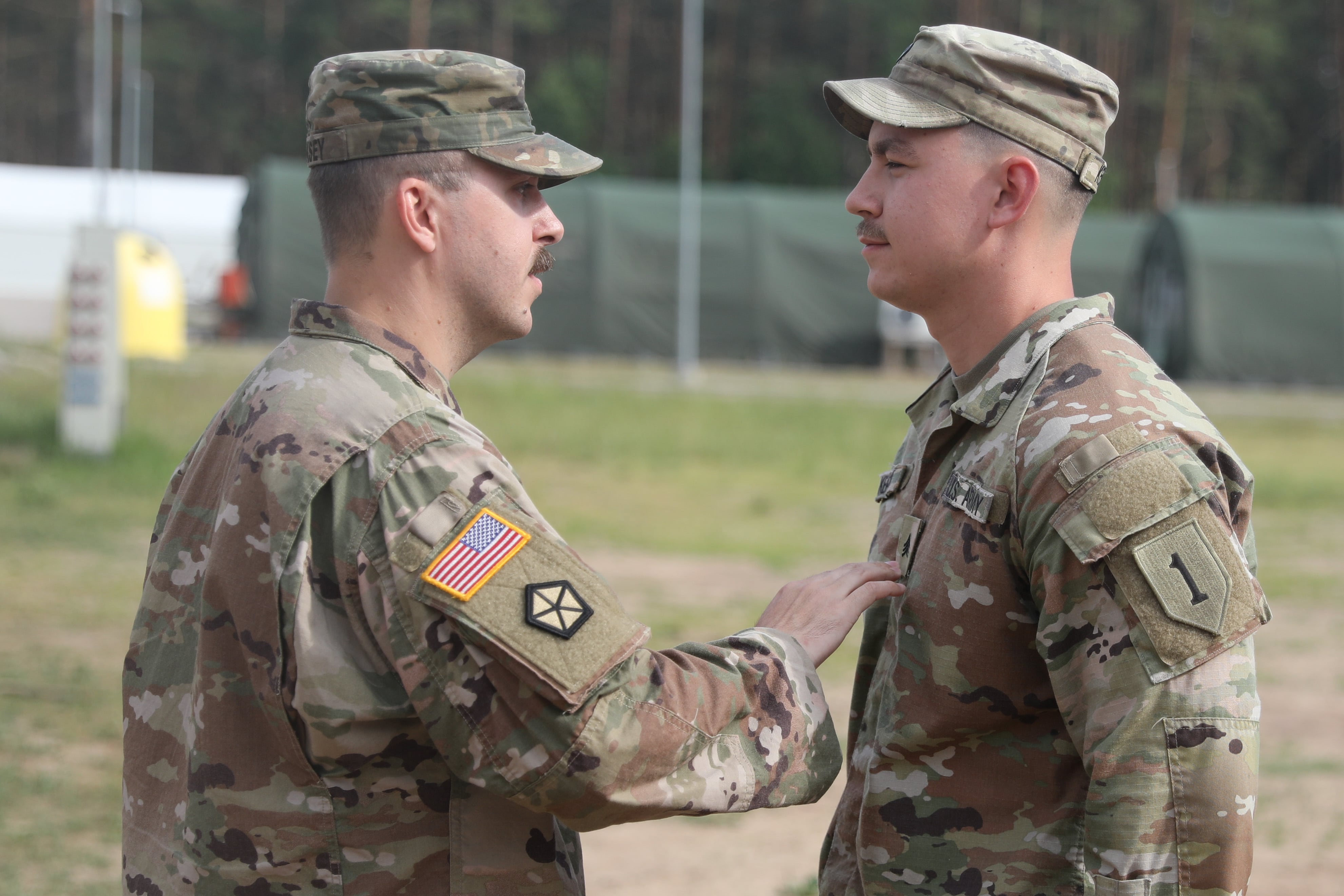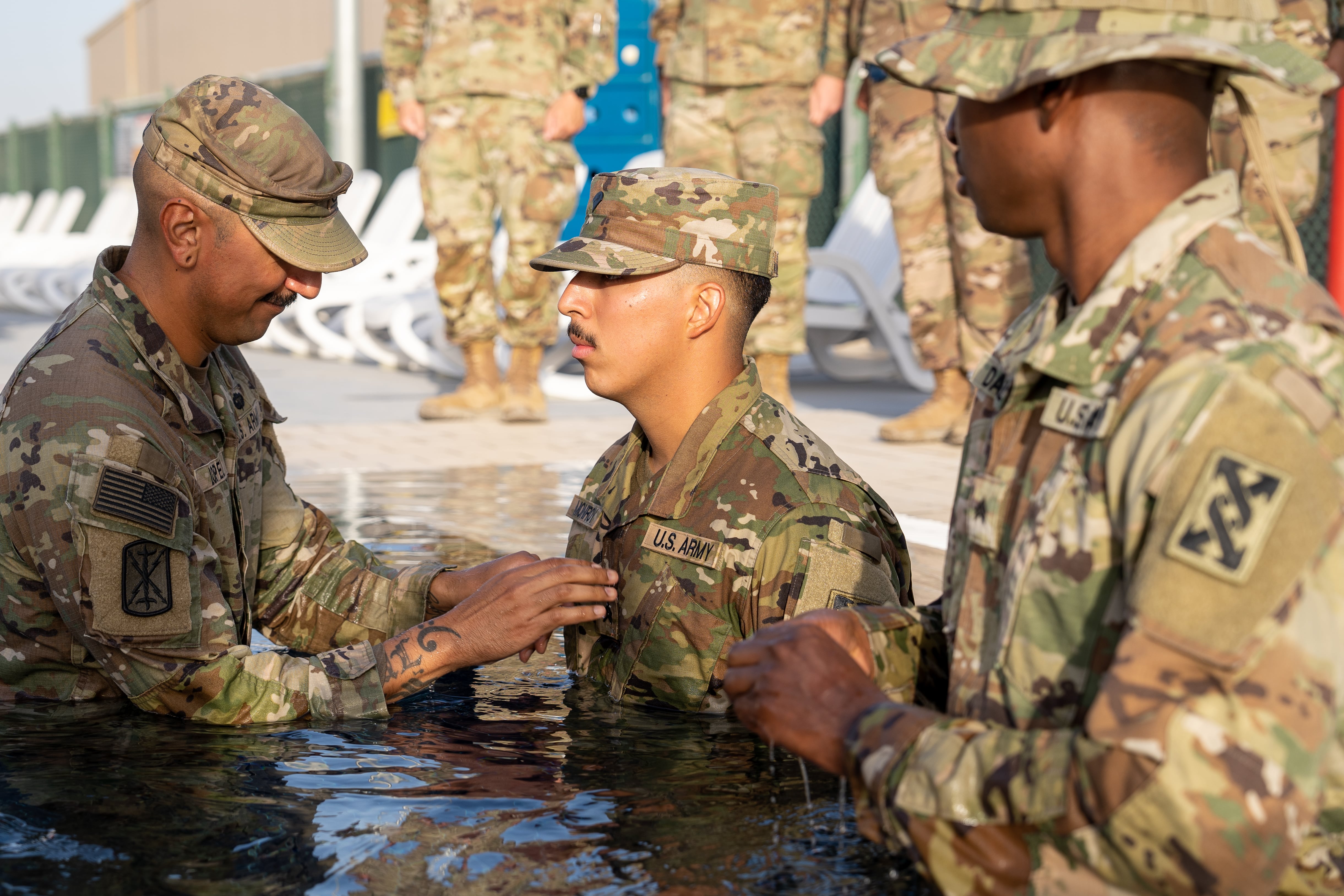This article was updated at 5:50 p.m. EDT on Sept. 14, 2023, with comments from an Army spokesperson provided after initial publication.
For nearly two years, the Army issued temporary promotions to noncommissioned officers regardless of whether they completed the required military education. That changes next year, according to a policy memo and Army release.
Beginning January 2024, active duty enlisted soldiers — and their permanent full-time counterparts in the Army Reserve — are ineligible for promotion to sergeant or beyond unless they’ve completed their professional military education, such as the Basic Leader Course. The Army National Guard and part-time Reserve troops will see the policy change begin in October 2024.
According to the memo from Lt. Gen. Doug Stitt, the Army’s top personnel officer, the change is meant to finally implement the service’s largely unrealized “selection, training, education, and promotion” or STEP, vision for enlisted talent management. Despite questions about the policy’s future, the Army has doubled down in order to finally link talent-based prioritization for training seats to their purported benefit: getting talented soldiers to the front of the line so they advance ahead of their peers.
Army spokesperson Lt. Col. Ruth Castro explained the factors that led to the policy in a statement emailed to Army Times.
Building from short-lived COVID-19 exemptions, the service began temporary NCO promotions for otherwise eligible soldiers to master sergeant in late 2021 when an internal audit found that Master Leader Course assignments were incorrectly issued on seniority rather than talent. The practice expanded to include all NCO ranks in January 2022 (and was later extended) due to excessive waitlists for pre-promotion training. Service members tapped for the temporary promotion had 12 months to complete their professional military education or they would lose their new rank.
RELATED

The Army’s top enlisted leader, Sgt. Maj. of the Army Michael Weimer, emphasized that the circumstances that began force-wide temporary promotions have changed. Weimer previously dubbed NCO development as one of his top priorities.
“Initial implementation of STEP was suspended due to temporary conditions, but those have passed, therefore we move forward, ensuring our soldiers have the training and resources they need to succeed as leaders in our Army” Weimer said in the release. “STEP will help ensure our NCOs are ready to train soldiers to be brilliant at the basics and lead them through the reps and sets required to master the fundamentals needed to execute successfully as warfighters.”
Castro, the spokesperson, echoed Weimer’s reasoning. “[D]eliberate engagement in developing and sustaining a professional NCO Corps is an Army priority and ensuring oldiers get to school is a necessary and essential element of our institutional success.”
She also confirmed that “slightly” lower promotion demand — which Army Times reported in March — helped ease the training backlog. Officials have acknowledged that the Army’s increasing reliance on retaining mid-career troops to maintain numbers during its recruiting crisis may be limiting upward mobility in some career fields.
RELATED

Interim advancement policies remain in place for soldiers in specified circumstances that may block training attendance. The memo confirmed pregnant and postpartum soldiers can still receive temporary promotions, as can those who are deployed or attending specialized programs like the Army Software Factory. Castro said promoting those soldiers when their number is called — instead of making them wait due to factors outside of their control — is important “to ensure best-qualified soldiers are promoted based on their potential.”
The Army may revive the policy for certain career fields and grades if their manning is critically low, the memo notes. One niche occupational specialty — engineer divers, 12D — appears to have such a carveout, though it’s unclear whether other specific fields will reinstitute temporary promotions immediately in January.
Castro said the service anticipates using that authority “as needed,” but due to the “ebb and flow” of manpower and soldier demands, “it is difficult to predict the timing and duration” for career field-based exemptions.
Davis Winkie covers the Army for Military Times. He studied history at Vanderbilt and UNC-Chapel Hill, and served five years in the Army Guard. His investigations earned the Society of Professional Journalists' 2023 Sunshine Award and consecutive Military Reporters and Editors honors, among others. Davis was also a 2022 Livingston Awards finalist.




